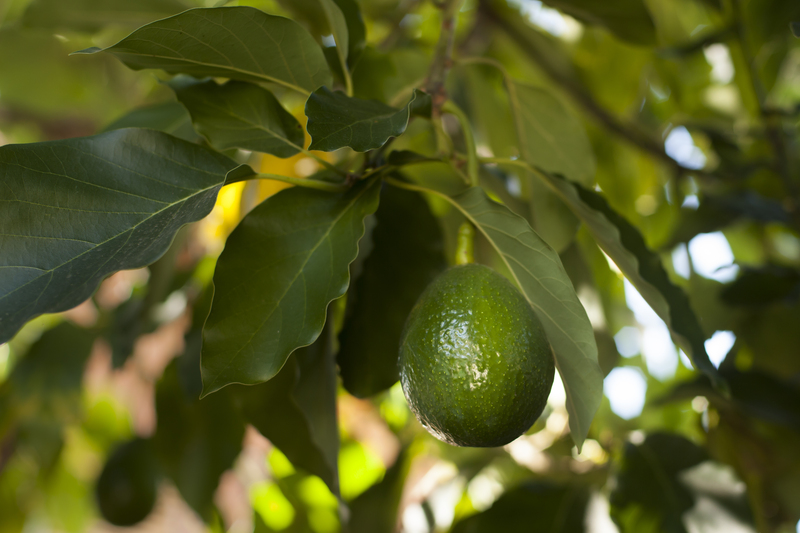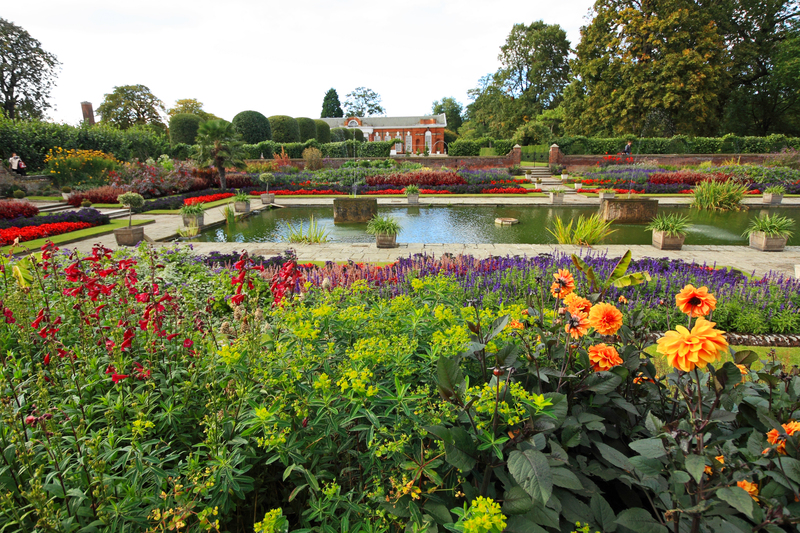Garden Growth with Repurposed Organic Matter
Posted on 12/09/2025
Garden Growth with Repurposed Organic Matter: An Eco-Friendly Solution
Are you seeking innovative ways to enrich your garden while reducing household waste? Embracing repurposed organic matter can transform the vitality of your plants and the sustainability of your gardening practice. In this comprehensive guide, we'll explore how you can foster exceptional garden growth using recycled organic materials, paving the way for a healthier environment and more bountiful harvests.

Understanding Repurposed Organic Matter
Organic matter originates from once-living organisms, including kitchen scraps, yard waste, paper products, and even certain fabrics. When repurposed, instead of being sent to landfills, this material can be utilized to dramatically improve soil structure, provide vital nutrients, and support beneficial microbial life--all crucial ingredients for flourishing gardens.
- Compost: The breakdown of organic waste to create nutrient-rich material.
- Mulch: Organic substances like leaves and wood chips applied on soil surfaces.
- Green manure: Cover crops, such as legumes or clover, turned into the soil.
- Worm castings: The byproduct of earthworms digesting organic material.
Why Repurpose Organic Matter?
Diverting organic waste from the trash not only keeps landfills cleaner and reduces greenhouse gas emissions, but it also arms gardeners with cost-effective, natural soil enhancements.
- Nourishes plants: Repurposed organic matter is packed with nutrients essential for robust garden growth.
- Improves soil texture: Loamy, well-structured soil promotes root development and water retention.
- Boosts soil biodiversity: Fosters earthworms and beneficial microbes.
- Reduces need for chemical fertilizers: Organically-fortified soil lessens reliance on synthetics.
Types of Organic Matter for Repurposing
1. Kitchen Scraps
Transforming kitchen scraps--fruit peels, vegetable ends, coffee grounds, eggshells--into compost is one of the easiest ways to start recycling organic materials for your garden. Be sure to avoid meat, dairy, and oily foods, which can attract pests.
- Fruit and vegetable waste
- Tea bags (without plastic)
- Nut shells
- Bread (in moderation)
2. Yard Waste
Clippings from grass, leaves, twigs, and branches can be shredded and layered in compost bins, used as mulch, or converted into biochar, providing slow-release nutrients and carbon to the soil.
- Grass cuttings
- Fallen leaves
- Wood chips and sawdust (from untreated wood)
3. Paper and Cardboard
Unbleached, non-glossy paper products--including newspaper and cardboard--add valuable carbon to compost piles, balance out "greens" (nitrogen-rich ingredients), and suppress weeds as sheet mulch.
4. Coffee Grounds and Tea Leaves
Both are superb additions to garden beds and compost, providing nitrogen and enhancing microbial activity.
5. Animal Manure
Composted herbivore manure (from chickens, rabbits, cows, or horses) infuses gardens with potent nutrients for vibrant growth. Ensure manure is well-aged to avoid burning plants.
Composting: The Cornerstone of Repurposed Organic Matter
What is Composting?
Composting is the controlled breakdown of organic matter into a stable, humus-like product that enriches soil and supports vigorous plant growth. Through careful layering and regular turning, you accelerate natural decomposition while minimizing odors and pests.
How to Start Composting for Garden Growth
- Choose your method: Options include traditional compost bins, tumblers, or worm bins (vermicomposting).
- Balance "greens" and "browns": Aim for 2-3 parts carbon-rich "browns" (leaves, paper) to 1 part nitrogen-rich "greens" (food scraps, grass clippings).
- Moisture and aeration: Keep your pile as damp as a wrung-out sponge and aerate regularly to encourage decomposition.
- Monitor and harvest: Finished compost should be dark, crumbly, and earthy-smelling--ready to feed your garden.
Composting Benefits for Garden Growth
- Improved soil structure and fertility
- Enhanced water-holding capacity
- Disease suppression through richer microbial life
- Cost savings and waste reduction
Mulching with Repurposed Organic Materials
Mulch protects soil, retains moisture, suppresses weeds, and adds nutrients as it slowly breaks down. Repurposed materials like grass clippings, shredded leaves, and even chopped cardboard are excellent, eco-friendly mulch options. Apply them 2-3 inches thick around plants.
Best Practices for Organic Mulch Use
- Never pile mulch against plant stems--leave room for air flow.
- Shred materials for faster decomposition and easier spreading.
- Renew mulch annually for continual benefits.
Green Manures and Cover Crops
Cover crops, also known as green manures, are fast-growing plants sown mainly to improve soil health. Legumes, oats, buckwheat, and clover fix nitrogen, prevent erosion, and, when turned into the soil, become an organic matter treasure trove. Plant in off-seasons or between harvests for continual garden enrichment.
Integrating Worm Castings (Vermicompost)
Worm castings are one of the most potent forms of organic fertilizer. By feeding kitchen scraps to red wigglers or other compost worms, you'll create biologically-rich worm castings that can be mixed into soil or used as a tea to drench plant roots.
- Boosts seed germination rates
- Encourages strong, rapid root growth
- Reduces plant disease incidence
The Science Behind Organic Matter and Plant Growth
Healthy soils teem with microorganisms that break down recycled organic materials, freeing up vital nutrients for plants. Humus, the stable result of organic decomposition, enhances cation exchange capacity (CEC), ensuring roots can absorb calcium, potassium, magnesium, and micronutrients more efficiently.
Carbon sequestration is another huge benefit. Repurposing organic matter in gardens locks carbon in the soil, keeping it from becoming atmospheric CO2, thus combating climate change at a local level.
How to Apply Repurposed Organic Matter
Step-by-Step Guide
- Collect suitable organic materials. Divide them into "greens," "browns," and other categories for targeted uses.
- Compost or mulch as appropriate. Use a dedicated bin or pile for compost; spread lawn trimmings and mulch directly.
- Incorporate compost into garden beds during spring or fall for best results, blending with existing soil.
- Sow cover crops and chop them into soil before planting main crops.
- Top-dress with worm castings around plant bases or brew into liquid "tea" for foliar sprays.
Common Mistakes and How to Avoid Them
- Adding diseased plants or weed seeds: Only healthy, seed-free material should be included.
- Using chemically-treated wood or lawn clippings: These may introduce toxins.
- Overloading compost with one type of material: Balance is key for decomposition and nutrient balance.
- Piling mulch too thick: Starves roots of air and can create soggy, rot-prone conditions.
Success Stories: Gardens Flourishing with Recycled Organic Matter
Gardeners worldwide are proving the remarkable effects of repurposed organic materials for soil improvement. Community gardens have cut waste by over 50% while increasing yields, and many urban growers credit compost and mulch with doubling the vigor of their vegetable patches. Even container growers report improved moisture retention and richer blooms using homemade compost teas.

Frequently Asked Questions
Can I compost citrus peels and onions?
Yes, in moderation. They're slow to break down, but small amounts add diversity without harming your compost pile.
What about pet manure?
Avoid cat and dog droppings, as they may contain pathogens. Stick with herbivore manure for safe garden use.
How fast will I see garden growth improvement?
Results can be noticeable within one season, especially with regular compost additions and diligent mulching.
Conclusion: The Future of Gardening is Green
By embracing repurposed organic matter in your gardening routine, you close the natural loop--restoring nutrients to the soil, nurturing robust plants, and making your garden growth sustainable. Whether your goal is more resilient flowers, juicier tomatoes, or healthier lawns, the solution is quite literally beneath your feet. Your contribution to a greener planet starts with harnessing the full power of repurposed organic matter for garden health--so create your compost pile, spread that mulch, and witness your garden and environment flourish together.
Ready to enhance your garden's vitality while reducing waste? Start today by recycling your organics, and join the movement toward a more sustainable, ecological, and productive garden.



